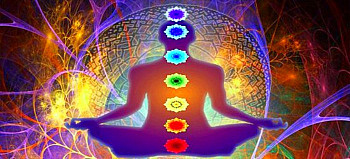
There is a big tree in front of the balcony of my second-floor apartment that shelters many birds. I get the opportunity to observe them at different times of the day and throughout the seasons. The very particular behavior patterns of these birds and other animals, including a stray cat or two in my yard, raise insightful questions for me about right and wrong actions (karma).
Paramhansa Yogananda often said that animals do not incur sin or karma, as they do not act through ego motivation. They instead are instinctive and follow nature’s laws. Yogananda explains that sin is an ignorance – an ignorance about the laws of nature. I wondered, bearing all of this in mind, if I could dispel ignorance and avoid creating negative karma by attuning to and following nature’s laws. I wanted to explore the possibility and give myself the chance!
In the Bhagavad Gita, Lord Krishna’s goal is to achieve the state of nishkam karma (acting without ego motivation) that brings moksha (liberation). So, the needle of liberation on the spiritual compass always points to nishkam karma. This is the point where we rise above the realm of karmic law and find freedom in the Infinite Spirit.
Going back to the Master’s (Yogananda’s) quote about animals and the purpose of life to achieve liberation in the midst of performing actions, I wondered what I could learn from the egoless activity of animals. I had to work in the world and activity would be a daily matter of concern.
Humans are, in fact, citizens of the animal kingdom but with some refined distinctions – We have a fully developed occult spinal system (chakras) and we have the boon of free will.
Despite these advantages, I notice that man is often worried and unhappy about one thing or another. In my yard, the birds chirp happily and the animals seemingly roam carefree. I contemplated the validity of free will as a boon for us because it so often turns to our disadvantage when applied through the ego.
Why do we struggle so much?
If life is a tapestry — woven threads of days and nights, I want to pay attention to the way that animals go through their days without creating negative karma. Some of us, on the other hand, struggle night and day to avoid the karma monster.
Yogananda said that physical wrongdoing brings physical ailments, mental misbehavior brings mental disharmony, and spiritual ignorance brings spiritual darkness. By now, thinking about those words, my thoughts are spinning like a wheel, but I ultimately discover a guidepost in Yogananda’s poem, “God! God! God!” In the poem, he divides the day and its activities into waking, eating, working, dreaming, and sleeping…
In waking, eating, working, dreaming, sleeping,
Serving, meditating, chanting, divinely loving,
My soul will constantly hum, unheard by any:
God! God! God!
This cycle of activity and action gave me some practical direction.
Waking
On the waking front, birds and animals start their day at dawn and end it at sunset. Many animals stretch right after waking. Many of us have seen cats stretching immediately upon waking in the morning and at different times throughout the day. Interestingly, Yogananda developed the Energization Exercises after observing the way a cat stretches. 
In the Autobiography of a Yogi, Swami Sri Yukteswar Giri commonly said, “The darkness of Maya is silently approaching. Let us hie homeward within.” Master regularly reminded his disciples at dusk with these words about their need to shift their attention from activity to their evening meditation practice and Kriya Yoga. It has often been confirmed for me that the words of an avatar are eternally true.
I notice that disciplined or spiritually awake people strive to maintain a dharmic routine until it becomes second nature, while worldly people work all through the day, and their recreation and entertainment often start at night. Master recommends that the night be reserved for God communion when everything is quiet. The beginning and end of the day are quieter times so best for connecting with the higher Self.
Eating
Animals also follow a natural eating pattern: herbivorous animals eat plants such as grass, frugivores thrive on fruits, and carnivores are happy with meat and flesh, and once they are full, they do not appear interested in or have cravings for a friend’s full plate of food! A saint once said that you won’t see a tiger too fat to run or a sparrow too fat to fly, as they eat only when hungry.
Many humans, nevertheless, habitually feel hunger whenever food is visible. Instead of following the needs of the body, we often follow the demands of the senses, controlled by the ego.
We like to think of ourselves as being smart and modern. We eat all kinds of foods: natural, organic, cooked, uncooked, overcooked, meat, vegetarian, processed, junk food, artificially flavored food, and food that is completely unnatural for us. I have to ask myself, am I a total exception to all this? I am certainly not. I have to do my best to follow the right rules to stay healthy.
Swami Sri Yukteswar Giri, a Gyanavatar (incarnation of wisdom), gave scientific reasons, explaining that man is essentially a frugivorous animal and would follow a natural eating pattern to keep healthy. Yogananda somewhat humorously said that most people dig their own graves with a knife and fork!
Working
I notice that in the workplace, the ego tries to sneak into our activities, increasing opportunities for running into negative karma. It’s fascinating how in the animal kingdom the most aggressive behavior revolves around securing food. On the human side, we often step into the world of work with aspirations of leading a meaningful and honorable life, though often find ourselves entangled in traps of power, name, and fame.
For myself, it’s important to hold onto the realization that my true essence remain aligned with my genuine needs.
Propagation
Nature’s ways are truly fascinating. Animals, driven by their instincts, mate only for propagation to ensure the natural cycle of life. Animals procreate within their species during seasons of abundance, guaranteeing an ample food supply for their offspring.
This raises a question for me: Are we, as humans, attuned to this subtle inner guidance? Spiritual teachings emphasize a crucial point— excessive indulgence in sensory pleasures can disrupt our mental and physical well-being.

Reflecting on this, I have come to understand that if I align myself more closely with nature’s cycles (subtle law operating around the clock), I will be more likely able to enjoy both physical and mental health. Following natural law could be a blueprint for a harmonious existence leading to a life in attunement with the essence of our physical and spiritual selves. It’s a delicate balance that nature seems inherently keen on to guide her creatures.
Our nervous system with its seven chakras is the royal pathway to liberation.
At this point, thoughts about the fully developed occult spinal system and the significance of the chakras emerge. Swami Kriyananda’s words in the Festival of Light resonate deeply with me. There is such a profound sense of divine grace and redemption in his words. “For now, by God’s grace, our redemption is at hand.” Our nervous system with its seven chakras is the royal pathway to liberation.
Using the techniques of Kriya Yoga handed down by our line of Gurus, we have the power to burn up negative karma and clear our way. I have the key to removing bad karma with the powerful flow of life force (prana-shakti) generated by Kriya Yoga!
The subject of removing karma seems overwhelming, yet I realize without much brainstorming that it is easy for me to draw guidance and inspiration from the natural rhythms of the animal kingdom about how to align my daily actions with less ego attachment. Through the benefits of Kriya Yoga, I can navigate beyond the entanglements of karma and go forward fast on the highway of Self-realization.
-Nayaswami Suvarna
_________________
 In 2011 after meeting Swami Kriyanandaji for the first time and with his loving invitation to come and live in Watunde (Pune), Nayaswami Suvarna moved to the ashram there from Mumbai. She was a Kriyaban before this time and was also a member of Ananda Sangha Pune.
In 2011 after meeting Swami Kriyanandaji for the first time and with his loving invitation to come and live in Watunde (Pune), Nayaswami Suvarna moved to the ashram there from Mumbai. She was a Kriyaban before this time and was also a member of Ananda Sangha Pune.
Suvarna served in Mumbai with her son Nayaswami Sagar for nearly 3 years. She has worked on translations (English into Marathi) of Autobiography of a Yogi, Essence of the Bhagavad Gita, The Essence of Self-Realization, Conversation with Yogananda, and The Art & Science of Raja-Yoga. Marathi is the third most spoken language in India after Hindi and Bengali.
In addition to her seva at the Pune and Pimpri centers, she also helps with the Ananda Kriya Yoga Home Study Course and the Kriya Sangha (Hindi). Suvarna also loves playing the harmonium and singing Master and Swamiji’s music.

4 Comments
Such a beautiful written article. Thank you
So grateful ! Thank you I’ve learned a lot !
Your experience and outlook bring much joy and positivity to inspire us. Appreciate your sharing so much.🙏
so beautifully written. surely encourages a seeker to be the keen observer of Mother Nature and open our Mind, Heart and Soul to divine wisdom. Thank you Suvarna ji for sharing your experience. I thoroughly enjoyed reading it. Blessing to all.